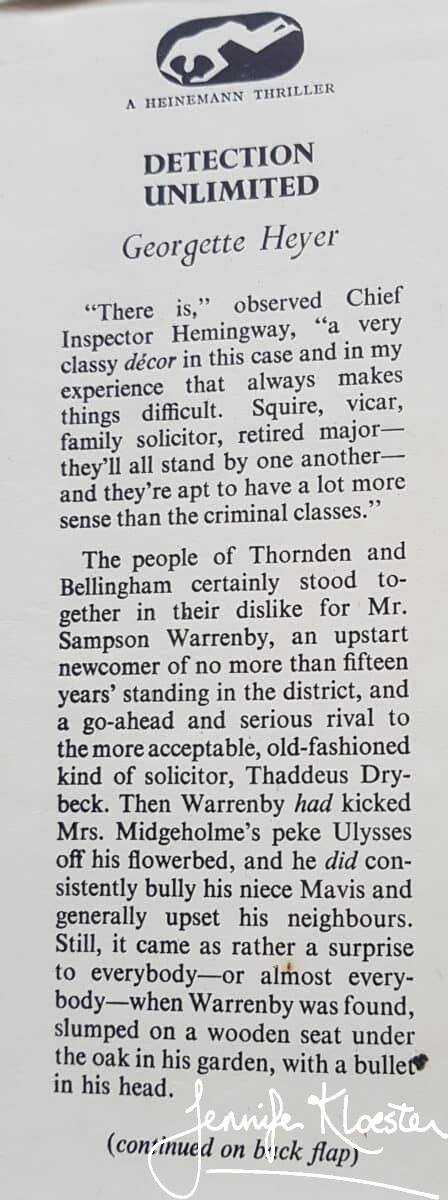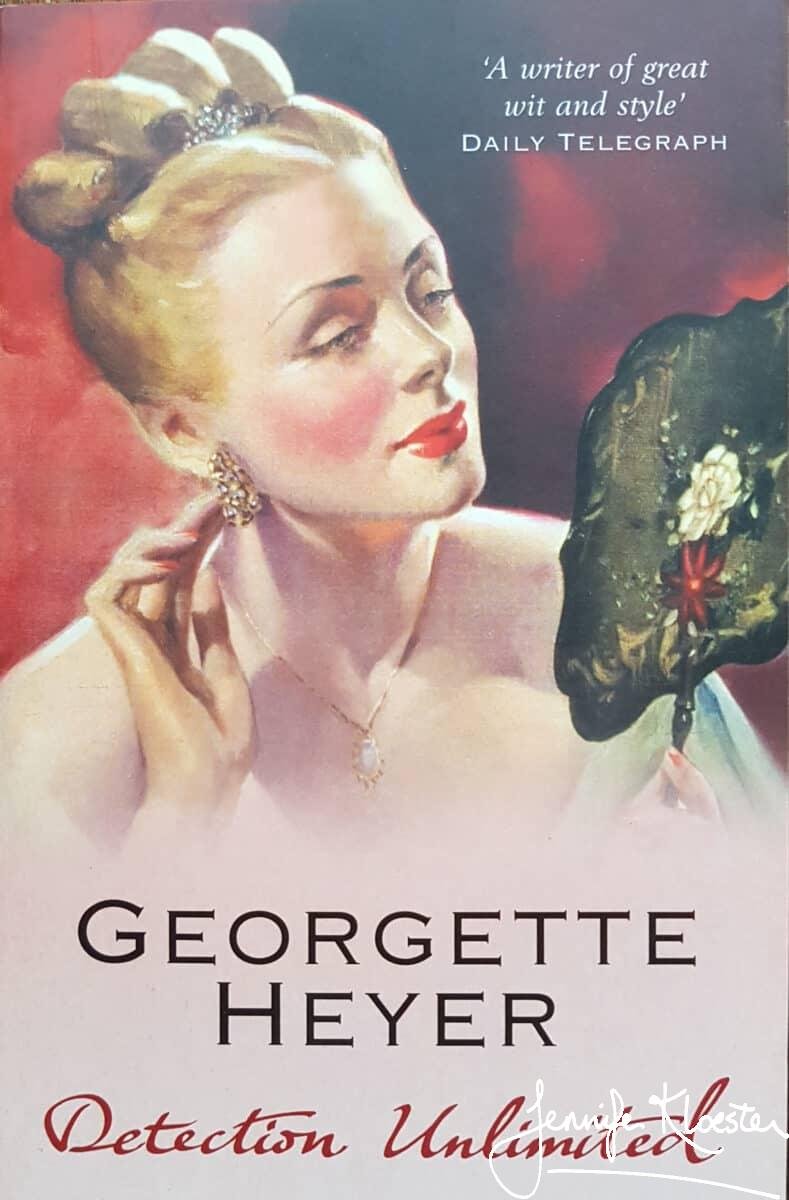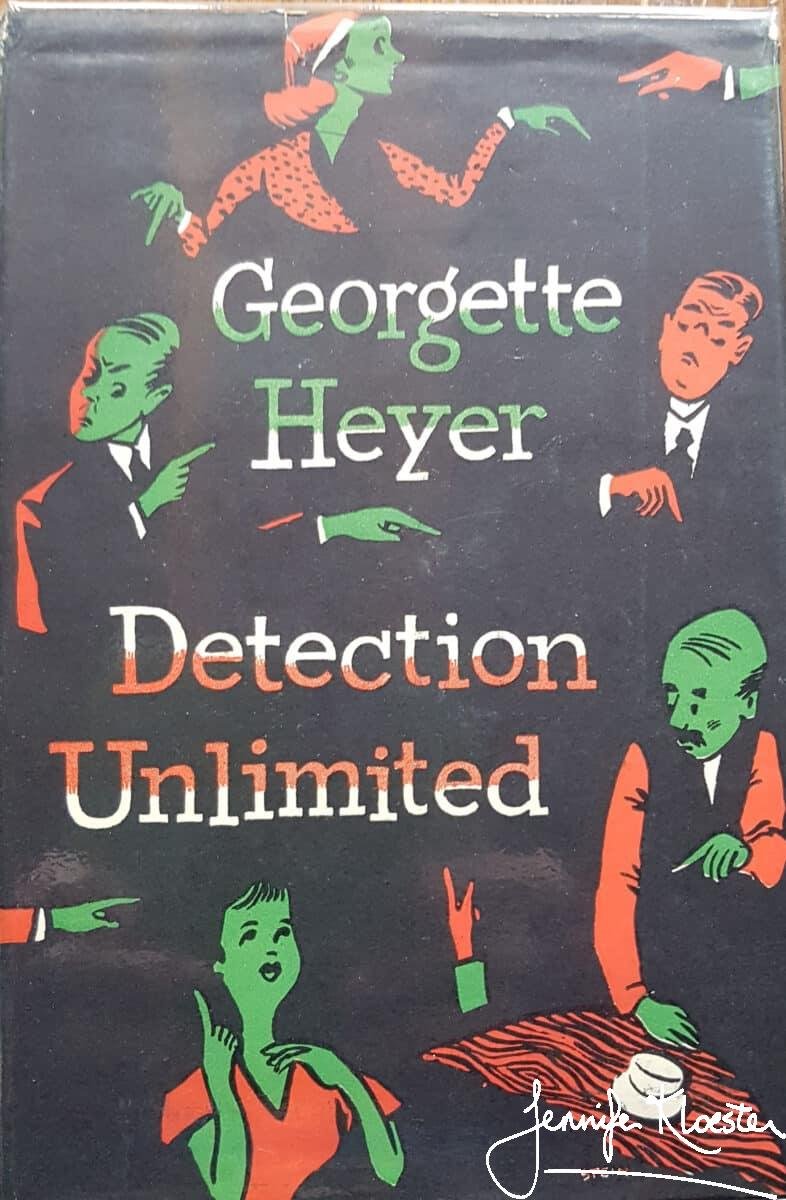
The 1953 Heinemann first edition jacket with illustration by Stein. 
Georgette’s map of Thornden, her fictional village in the novel
“I might bend my reluctant mind thrillerwards”
In April 1952, while she was writing the last pages of Cotillion, Georgette commented that her publisher, A.S. Frere of Heinemann, had blithely informed her “that he has scheduled a detective novel by Me for this autumn. Why he doesn’t write Humorous Books instead of publishing tripe by Bevan I shall never know. He appears to me to be a Master of the Improbable.” [Georgette Heyer to Louisa Callender, letter, 29 April 1952.] In May, Georgette finally sent Cotillion to her publisher at Heinemann. Though she declared the manuscript “the messiest MS I have yet sent you,” she was pleased with the book, which had proven to be one of her longer novels (it was 112,000 words). She told Frere that “it seems to me to run easily; and I do think it has its moments – not to mention my own favourite hero” – a sentiment about the delightful Freddy Standen that would be shared by many of her fans for generations to come. To celebrate the completion of the new book, Frere took her to lunch – most probably to the Ritz or the Savoy as both were favourite eating spots with excellent wine lists! A few days later Georgette wrote to say:
‘Many thanks for a lovely lunch, which I enjoyed more than somewhat. It did me a great deal of good, and I came straight home and wrote a short story. I am now going to write another, called Pink Domino; and if I can think of the plot of it, I shall do a third, called Cold Dawn. After that, I might bend my reluctant mind thrillerwards.’
Georgette Heyer to A.S. Frere, letter, 5 May 1952.
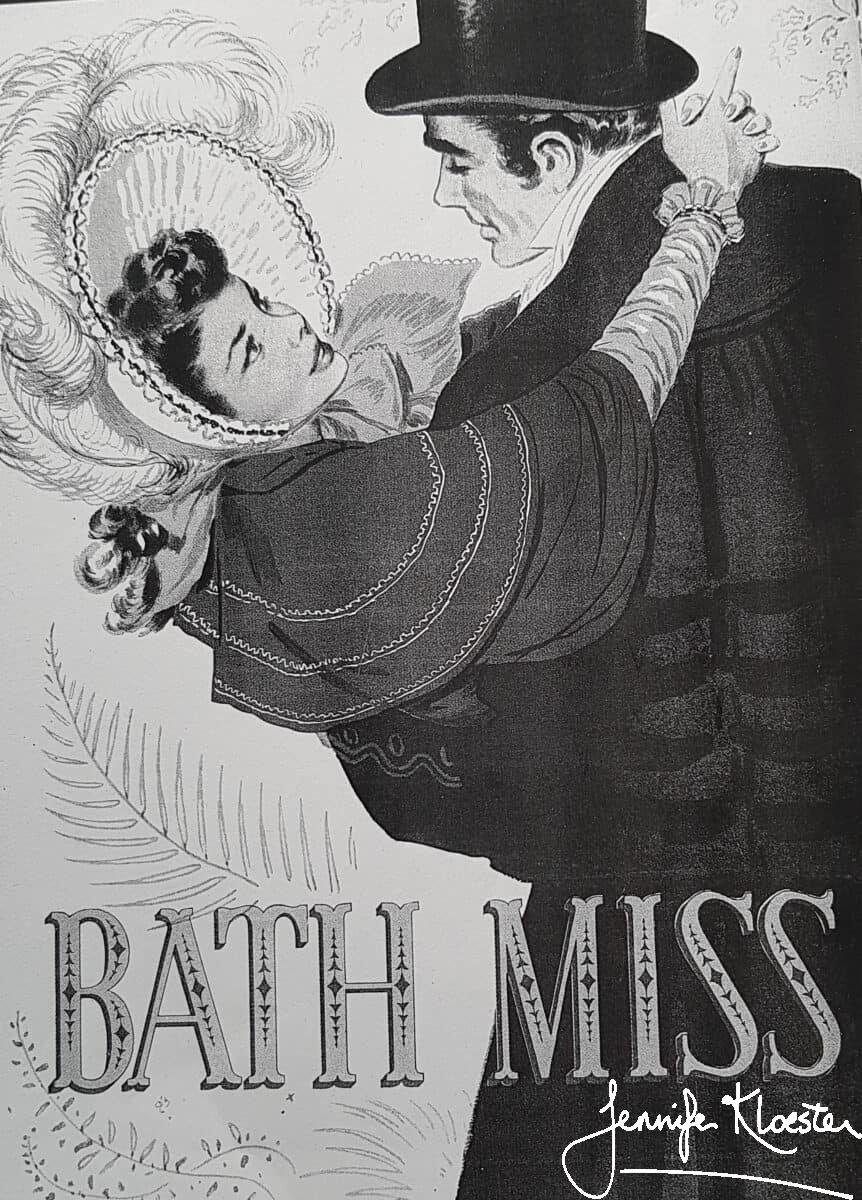
Short stories and a wedding
The short stories were a necessary distraction from the planned new detective novel because Georgette’s brother Boris, five years her junior, had “announced his intention of getting married” and Georgette had generously offered to pay for his wedding reception. Her status as a consistent bestseller and the increasing demand from readers for her historical novels meant that her short stories were also in demand. Magazines were still hugely popular in the 1950s and famous authors were well-paid for their short stories. Georgette was no exception. Her agent, Joyce Weiner, easily sold “Pink Domino” to Woman’s Journal and “Bath Miss” to Good Housekeeping for £200 each. “Cold Dawn” very likely became “The Duel” which was published in Good Housekeeping early the following year. It was good money for a few hours work and Boris’s wedding to Evelyn Lyford, a “charming widow”, was a great success. The reception took place at Albany with Georgette and Ronald playing host to the wedding guests. It was a delightful celebration and marked the beginning of a happy marriage. Georgette’s other brother, Frank, would also marry a widow, but neither of the Heyer men would have children and the family name of “Heyer” – which their sister would make internationally famous – would eventually die with them.

“Rather an honour”
With the wedding behind her, Georgette told friends that she “’hoped to rush off Detection Unlimited”, but a welcome distraction in the form of a special commission again prevented her from starting the new detective novel. King George VI had died in February 1952 and his daughter, Elizabeth, was to be crowned in June 1953. In July 1952 the editor of Good Housekeeping asked Georgette to write a brand new Regency short story for their special Coronation edition. Such a special request could not be ignored and Georgette told Frere that she had been given free rein to write
“what I like, as long as I like, at Joyce’s price, and not theirs. I thought I ought to make an effort to do this, for I suppose it is rather an honour. And so far I haven’t an idea in my head. Lord, why didn’t I take up charring, or something easy?”
Georgette Heyer to Louisa Callender, letter, 10 July 1952.
Despite her worry that she would find writing this special story it a challenge, in typical Heyer style, Georgette soon produced a charming tale of almost-thwarted love, which she called “The Pursuit of Hetty”. It was a delightful tale, and in years to come, elements of the story would form the basis of two of her Regency novels.
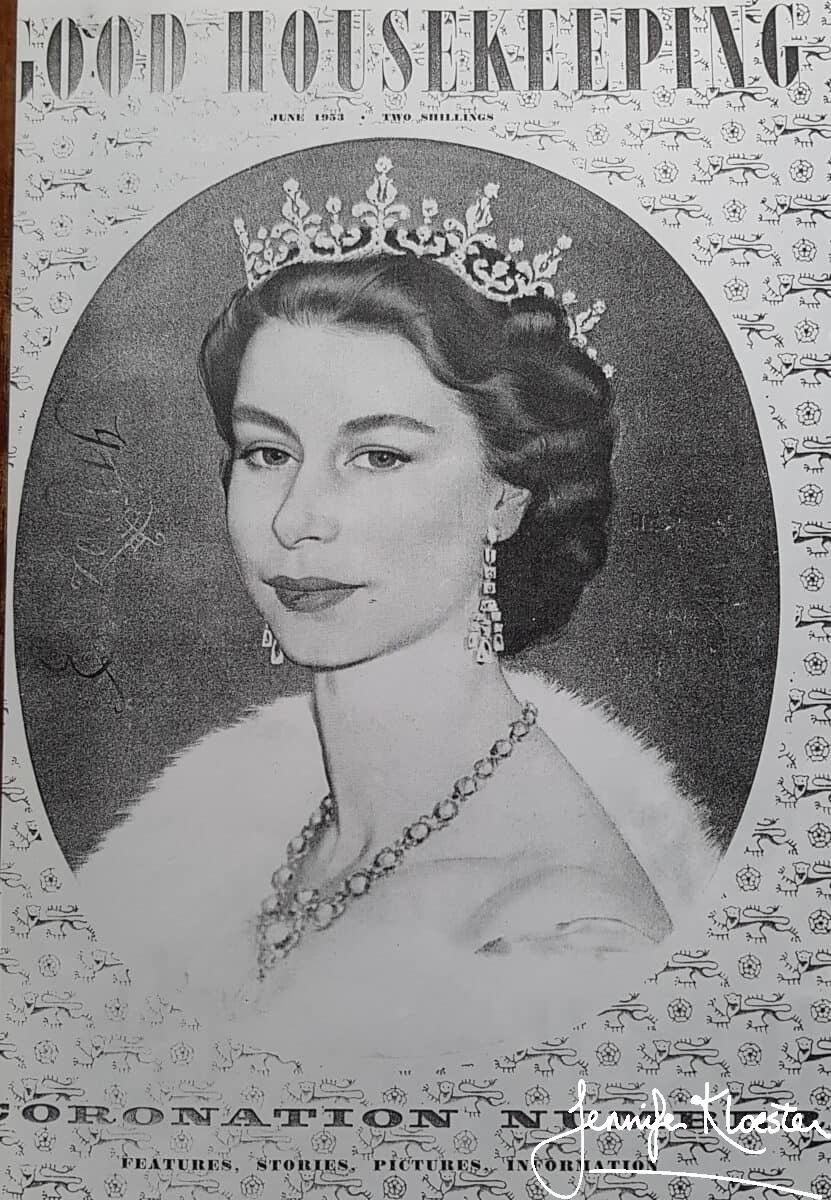

“I must write a thriller”
Unusually for a Heyer novel, and despite Heinemann’s enthusiasm for the novel, the timeline for writing Detection Unlimited is unclear. In the letters extant for the second half of 1952, Georgette does not mention the manuscript. It is not until February 1953, in a letter to Frere, that she finally mentions the long overdue book again: “I must write a thriller, & I want to get on with my medieval chronicle. I have been deep in Medieval Industries lately, & fascinating they are.” She must have put the medieval research to one side, however, for she finally began Detection Unlimited shortly afterwards and had finished it by June 1953. Heinemann immediately sent the manuscript to Dorothy Sutherland, the editor of Woman’s Journal. Georgette had every expectation that Miss Sutherland would buy the novel and make it the magazine’s next serial story. Unfortunately, in mid-July, Georgette received a letter from Louisa Callender at Heinemann to say: “I have heard from Miss Sutherland this morning. She says: ‘I am afraid DETECTION UNLIMITED just isn’t serial material.’ Isn’t it disappointing? I did not expect this. I am now trying elsewhere with it.” Sadly for Georgette, by September the message was clear – magazine editors could not see the novel as serial material and Georgette wrote at the bottom of one of the Heinemann letters: “”Nobody has taken “Detection Unlimited” for serial. They all say it won’t serialise!” It was a decided blow as she had been counting on the money from the serial to pay a large tax bill.
I can’t say I’m surprised, though I am cast down! I only wrote the thing for sordid gain, so I hope to god you manage to get rid of it. I shall be home on Monday – and it seems to me that if Detection Unlimited won’t serialize I shall have to knock off another blasted romance, purely for that purpose.
Georgette Heyer to Louisa Callender, letter, 16 July 1953.

A clever character study
The crack about writing only “for sordid gain” wasn’t true, for Georgette had actually put a lot of thought into the book. Detection Unlimited is among her best detective novels, in part because it is not only very witty but also a really clever character study. It is a Chief-Inspector Hemingway novel and the detective’s famous love of psychology and his conviction that the more complicated things become the closer he is to solving the murder are very much to the fore. One of the fascinating things about the book is its many descriptions of life in 1950’s England. The mention of such things as “Lincrusta Walton” wallpaper, the radio program: Mrs Dale’s Diary, and the vivid description of The Sun, the hostelry where Hemingway stays while investigating the case, are among the many vivid examples of life in a well-to-do English village in that era. Georgette’s observations about the many social changes since the end of the Second World War are also interesting. She’s noticing that “People aren’t as hide-bound as they used to be” and, while she mourns the loss of some aspects of the old social order, Georgette also recognises some of the changes as progress. It’s worth reading Detection Unlimited just to better understand her attitudes and ideas.
“You might let me know…”
It is unfortunate that once again her publisher seems not to have read her novel either in manuscript or in its final book form, In August, Georgette wrote to Frere to say:
You might let me know some time or other whether you like, dislike, or tolerate the book. I think you’ll appreciate the first appearance on the scene of Mr Haswell: the passage between him and his son went right home, when read by Mr G.R. and Mr R.G. Rougier. Richard said thoughtfully: A boy’s best friend is his mother – they say!
Georgette Heyer to A.S. Frere, letter, 21 August 1953.
It must have been incredibly frustrating for Georgette, who, despite comments about having written only for “sordid gain” or having to write “another blasted romance”, so clearly cared about her novels and wanted her publishers to care too. For much of her writing life she longed for feedback from people in the industry whom she admired and trusted to be honest with her. Too often she was disappointed. Detection Unlimited was to be her last collaboration with Ronald. He provided her with the obscure but vital legal key to the mystery by coming up with a “Cestui que trust” – a thing that almost no one has ever heard of but which in trust law is “is the person or persons who are entitled to the benefit of any trust arrangement.” They had enjoyed their many collaborations, especially in the early years when he had helped Georgette with the research for books like Beauvallet and The Conqueror. Ronald had devised some devious murder methods, but he was now busy with his law practice and Georgette had written her last murder mystery. From now on she would write only Regency novels and work on the medieval story she had so long wanted to write.

The 1969 Dutton hardback edition 
The 1971 Bantam paperback edition
The “Ultimas” – pure-bred Pekingese
It is impossible to write about Detection Unlimited and not mention the dogs. Georgette loved dogs and featured some marvellous canines in several of her novels. In this last of her mysteries she had a lot of fun with the “Ultimas” – the pomp of pure bred Pekingese dogs owned by the delightful Mrs Midgeholme. Having named her house “Ultima Thule”, Mrs Midgeholme’s breeder name for her “Peekies” is “Ultima” and each new dog’s personal name begins with the letter “U”. This leads to some very funny passages where various characters in the novel talk about the dogs’ unusual names. As these include Ultima Urf, Ultima Untidy, Ultima Ullapool, Uppish, Ursula, Umbrella, Uplift, Unready, Urbania,, Ulrica, Uriah, and Ultima Umberto, there is plenty of scope for comedy: “Not bad, really, except that one would feel such a fool, shouting Urf, Urf, Urf, in the street.” And when a new litter is born there are hilarious suggestions of Ultima Uzziah, Umslopogias [from Rider Haggard’s Alan Quartermain novels], and Ullulume. Mrs Midgeholme, as their doting owner, generally refers to her dogs as her darlings, her treasure, and angel, and kisses them whenever she is sure their feelings have been hurt. In Detection Unlimited, one suspects that, having had at least one Pekingese in the family of her youth, Georgette was remembering the ways in which one or more of her female relatives spoke to their pet.
Mr Drybeck, wincing at his companion’s frequent shrieks to Umbrella, Umberto and Uppish, was forced to remind himself, not for the first time, that Flora Midgeholme was a good-natured and plucky woman, who bore uncomplainingly the hardships of a straitened income, eked it out by dispensing with the services of a maid and by breeding dogs, and always presented to the world the front of a woman well-satisfied with her lot.”
Georgette Heyer, Detection Unlimited, Pan

“In the best of humour”
“Miss Georgette Heyer practises a very much milder mystery that Mr Chandler [Raymond Chandler, The Long Goodbye], and the murder of an objectionable solicitor in Detection Unlimited is solved without recourse to violence and in the best of humour. Chief Inspector Hemingway and Inspector Harbottle are summoned from Scotland Yard to make the acquaintance of a variety of local characters, most of whom are busy with amateur solutions of the crime, though they can legitimately be regarded as suspects. Miss Heyer writes with ease and manages her plot with quiet efficiency, setting no store by sadism or painful suspense, taking more pleasure in the social comedy of the residents who are excited by the case than in the darker aspect of the hunt for the killer. “It sounds like a nice case,” remarks Chief Inspector Hemingway, when confronted with it, and it is a nice case, making no demands whatever on the nerves.”
The Times Literary Supplement, 1 January 1954.



